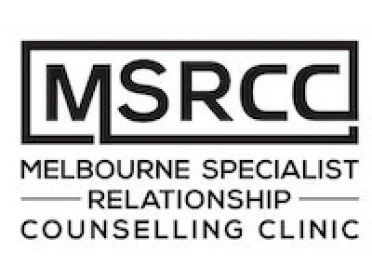
Sexuality is a fundamental part of who we are. It shapes how we feel, behave, and see ourselves. The connection between sexuality and mental health is profound, and understanding this link is key to creating a more supportive and understanding environment—especially for those exploring their sexual identities.
Navigating Sexuality: Common Experiences
Exploring your sexuality is a deeply personal journey, one that can be full of emotions and challenges. It’s completely normal to feel a mix of confusion, fear, and even loneliness, especially if you’re in a place where acceptance and support are hard to find.
Confusion and Uncertainty
It’s okay to feel unsure about your sexual orientation or gender identity. This confusion can be unsettling and might stir up anxiety or sadness. Take your time—it’s your journey, and there’s no rush to figure everything out.
Fear of Rejection
Many people worry about being rejected by their loved ones or society if they come out. This fear can make it tough to be true to yourself and to seek the support you need. But remember, there are people who will accept and love you for exactly who you are.
Isolation and Loneliness
The fear of not being accepted can sometimes lead you to withdraw from social interactions, leaving you feeling lonely. Reaching out to supportive communities, whether online or in person, can help you feel more connected and less alone.
Discrimination and Bullying
Many of those who identify as LGBTQ+ often face discrimination, bullying, or harassment. These painful experiences can take a toll on your mental health. Finding safe spaces and allies who support you is crucial for your well-being.
Recognising Early Signs of Mental Health Issues
It’s important to be aware of the early signs of mental health problems so that you can seek help when you need it. Here are some things to watch out for:
- Persistent Sadness or Depression: If you’ve been feeling sad or hopeless for a long time, it could be a sign of depression.
- Anxiety and Panic Attacks: Constant worry, fear, or panic attacks might indicate an anxiety disorder.
- Social Withdrawal: Avoiding social interactions and pulling away from friends and family can be a signal that something isn’t right.
- Changes in Eating or Sleeping Habits: If you notice big changes in your appetite or sleep patterns, it might be a sign of mental distress.
- Substance Abuse: Turning to drugs or alcohol to cope with difficult feelings is a sign that you might need support.
- Loss of Interest in Activities: If you’ve lost interest in things you used to enjoy, it could be a sign of depression or another mental health issue.
- Self-Harm or Suicidal Thoughts: If you or someone you know is engaging in self-harm or having thoughts of suicide, it’s essential to seek help immediately.
The Important Role of Family and Friends
Family and friends play a huge role in supporting someone as they navigate their sexuality and mental health. Here’s how you can help:
- Offer Acceptance and Support: One of the most powerful things you can do is to offer unconditional love and support. This can make a big difference in reducing feelings of fear and isolation.
- Be a Listening Ear: Sometimes, just being there to listen—without judgment—can make all the difference. Let your loved one know that they can talk to you about anything.
- Educate Yourself: Take the time to learn about different sexual orientations and gender identities. This knowledge will help you better understand and support your loved one.
- Encourage Professional Help: If you notice signs of mental health issues, gently suggest that your loved one consider talking to a professional. Therapists and trauma counsellors can offer the tools and support needed to manage mental health challenges.
- Create a Safe Environment: Make sure that your home and social spaces are safe and accepting places where your loved one feels free to be themselves.
- Stand Up Against Discrimination: Be an ally by standing up against discrimination and bullying. Your support in advocating for equality and acceptance is crucial.
Promoting Sexual Well-being
Taking care of your sexual health is a vital part of your overall well-being. Here are some sexual wellbeing tips to keep in mind:
- Open Communication: Talk openly with your partner about your needs, desires, and boundaries. Honest communication is the foundation of trust and understanding.
- Regular Check-Ups: Keeping up with regular health check-ups is essential for maintaining your sexual health. A healthcare provider can offer valuable advice and screenings to help you stay healthy.
- Safe Practices: Practising safe sex helps prevent sexually transmitted infections (STIs) and supports your overall health. Don’t hesitate to ask for guidance if you have concerns.
- Educate Yourself: Staying informed about sexual health and the resources available can empower you to make the best decisions for your well-being.
- Seek Professional Help: If you’re facing challenges related to sexual health, talking to a professional can be incredibly helpful. Sexual intimacy and relationship or marriage counselling can provide valuable insights and support.
Building a Brighter Future Together
Understanding and supporting the connection between sexuality and mental health is vital, especially for those exploring their sexual identities. By fostering a supportive environment and recognising the early signs of mental health issues, we can help our loved ones live healthier, happier lives. Following sexual health guidelines and adopting well-being practices can further enhance both mental and emotional health.
If you or someone you know is struggling, remember that reaching out for professional support can make a world of difference. Each step you take towards understanding and healing is a step towards a brighter, more fulfilling future. You don’t have to go through this journey alone.
Disclaimer: This blog post is for informational purposes only and should not be considered a substitute for professional advice. If you or someone you know is struggling with mental health, please seek support from a qualified therapist or counsellor.


